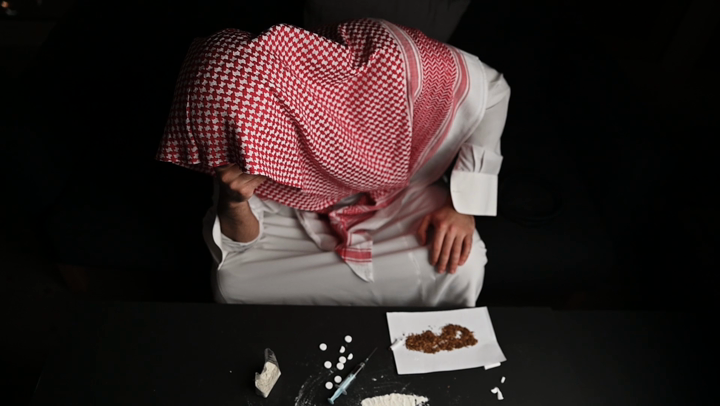Authored by: Humza Rana
Substance misuse is a pressing issue affecting adolescents globally, and Arab communities are no exception. In many Arab countries, the prevalence of substance abuse among adolescents has been rising steadily, presenting challenges not only for health systems but also for families and communities at large. The need for comprehensive strategies to address this issue—ranging from prevention to rehabilitation—is urgent to safeguard the well-being and future of Arab youth.
Understanding the Scope of the Problem
In the Arab world, adolescents face unique cultural, societal, and economic challenges that can contribute to substance misuse. Issues such as peer pressure, family dynamics, and exposure to substances through media and social influences can lead to experimentation and dependency. Additionally, socio-economic factors like unemployment, poverty, and lack of education can also contribute to an environment where young people turn to drugs as a means of coping with stress and life pressures.
The substances most commonly misused in the region include alcohol, tobacco, marijuana, and increasingly, prescription drugs and synthetic substances. The World Health Organization (WHO) has reported raising concerns about substance misuse in the Middle East and North Africa (MENA) region, particularly among vulnerable groups like adolescents.
Safeguarding Adolescents: Prevention is Key
Preventing substance misuse before it starts is the most effective approach. Communities and policymakers in Arab countries have recognized the importance of early intervention and public awareness campaigns. Here are several preventive measures:
- Education and Awareness Programs: Schools and community centers play a critical role in educating adolescents about the dangers of substance misuse. Awareness campaigns should highlight the risks associated with substance use and offer alternatives to unhealthy coping mechanisms. By starting these programs early, children and teens are better equipped to make informed choices about their health.
- Parental Involvement: Parental support and involvement are crucial in the prevention of substance misuse. Parents who communicate openly with their children about drugs, set clear boundaries, and model healthy behaviors can help protect their children from falling into harmful habits. Programs aimed at improving parenting skills and building awareness of substance misuse can further empower families.
- Strengthening Social Support Systems: Adolescents are more likely to engage in substance misuse when they feel isolated or unsupported. Community-based programs that foster a sense of belonging and support, such as youth clubs, sports, and mentorship programs, can help build resilience and reduce the likelihood of substance misuse.
Rehabilitation and Treatment: Providing Support for Recovery
When prevention fails, rehabilitation becomes essential. Adolescents who struggle with substance misuse require a comprehensive approach that not only addresses the physical aspects of addiction but also the underlying emotional and psychological factors. Effective rehabilitation programs should include:
- Medical and Psychological Support: Adolescents battling substance misuse need access to both medical and psychological treatment. Detoxification, counseling, therapy, and medication can help young people overcome their dependence on substances. Counseling should be individualized to address the specific emotional and psychological needs of the adolescent.
- Rehabilitation Centers: Many Arab countries have established rehabilitation centers tailored to the needs of young people. These centers provide a safe and structured environment for adolescents to recover. They often include therapy, group support, educational programs, and vocational training to help individuals reintegrate into society.
- Aftercare and Support Networks: Recovery does not end with rehabilitation. Ongoing support, including counseling and peer support groups, is critical to preventing relapse. Aftercare programs should be designed to help adolescents transition back into their communities while continuing to manage their recovery.
Education and Empowerment: Long-Term Solutions
Ultimately, empowering young people through education and providing opportunities for a healthy and fulfilling life are key to long-term solutions. Here’s how:
- Vocational Training and Employment Opportunities: Providing adolescents with the tools they need to succeed academically and professionally can give them a sense of purpose and reduce the temptation of substance misuse. Vocational training programs can offer hands-on skills that lead to stable employment and a sense of self-worth.
- Mental Health Education: Addressing the mental health needs of adolescents is crucial. Arab countries should invest in mental health education, raising awareness about the importance of mental well-being and reducing the stigma surrounding mental health issues. This will help adolescents feel comfortable seeking support when they need it.
- Promoting Healthy Lifestyles: Encouraging physical activity, hobbies, and social engagement can give adolescents positive outlets for stress and self-expression. Promoting healthy lifestyles, such as regular exercise and balanced nutrition, can play a significant role in preventing substance misuse.
Conclusion
Addressing substance misuse among Arab adolescents requires a multi-faceted approach that incorporates prevention, rehabilitation, and long-term education. By empowering young people, strengthening families, and creating supportive communities, we can reduce the prevalence of substance misuse and ensure a healthier future for the next generation. Collaboration among governments, healthcare providers, educators, and community organizations is crucial to creating effective solutions that meet the unique needs of Arab youth and protect them from the dangers of substance misuse.
